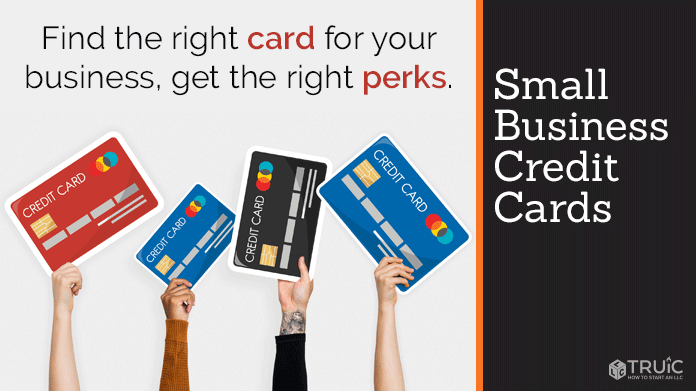Small Business Credit Cards: The Complete 2025 Guide to Finding Your Best Option
Make Your Business Thrive — Smart, Practical, and Empowering Ways to Use the Right Card
.png)
Why Use a Small Business Credit Card?
Think of a small business credit card as a tool — one that can protect your cash flow, build your business credit, and open up opportunities that cash or checks simply can’t. Let’s look at the biggest advantages:
- Separation of finances: Keeping personal and business expenses apart — no more confusing tax time spreadsheets.
- Business-specific rewards: Earn cash back, points, or miles on the purchases that matter to your business (like office supplies, shipping, ad spend, and travel).
- Build credit for your business: Establish a business credit profile with responsible use — this becomes crucial for securing financing, better vendor terms, or even leasing office space (Ramp.com, 2025).
- Employee spending power: Issue cards to staff with spending limits and track every transaction, hassle-free.
- Access to capital: Get short-term financing through your card’s limit — a lifeline if you hit a slow sales month (but don’t rely on it as your only strategy).
Of course: these cards aren’t “free money.” You need discipline, a clear spending policy, and full awareness of what you’re signing up for. We’ll break it all down.
How to Choose the Best Card for Your Business
Ready to dive in? Here’s how to pick a card that’s in line with your growth goals and your spending habits:
- Assess your business spending: Where does your money go? Office supply stores, travel, tech, shipping, or digital ads? Use recent bank statements to tally up categories.
- Decide on rewards type: Would cash back help your bottom line, or do you benefit more from flexible points or travel rewards?
- Examine fees and rates: Look beyond the headline — watch for annual fees, balance transfer fees, foreign transaction, and especially the interest rate (APR).
- Check for signup bonuses: These can offset annual fees or boost your rewards fast, but make sure the spending requirement fits your actual cash flow.
- Consider employee card needs: Will you issue extras? Check for policies and costs.
- Review approval requirements: Most issuers look at your personal and business credit, income, and how long your business has been running (NerdWallet, 2025).
Tip:
Cards marketed as “business” often have richer rewards and higher limits than consumer cards, but approval can require established credit and a legitimate business — sole proprietors and freelancers are usually eligible, too!

Key Features and Benefits of Small Business Credit Cards
Major Benefits
- Rewards for business essentials: Many cards offer 1.5% to 5% cash back or points on categories like office supplies, telecom, shipping, and fuel.
- Expense tracking tools: Most cards include year-end summaries, receipt matching, and integration with QuickBooks or Xero.
- Purchase protections and insurance: From extended warranties to travel accident insurance, cards give your business an upgrade in peace of mind.
- Employee cards and controls: Issue multiple cards, set spending limits for each user, and monitor every transaction in real time.
- Special financing offers: 0% APR periods (6-18 months typical) on purchases or balance transfers can help with startup costs if you plan ahead.
Key Features to Watch For
- Annual fees: Ranges from $0 to $595+. Make sure benefits outweigh costs for your business.
- Interest rates (APR): Rates average 15%–25% (NerdWallet, 2025). Always pay in full to avoid interest if possible.
- Introductory bonuses: Earn $500+, 75,000 points, or other perks for meeting a minimum spend in the first months.
- Foreign transaction fees: Avoid these (typically 2–3%) if you spend internationally.
- Credit reporting policy: Some cards report account activity to consumer and/or business credit bureaus — a vital factor for building both credit profiles.
Best Small Business Credit Cards of 2025
The following cards earn expert and user accolades for their balance of rewards, flexibility, and competitive fees. Remember: The “best” card always depends on how you use it. Below is a snapshot of top performers (researched from NerdWallet, US News, Credit Karma, and others):
Ink Business Unlimited® Credit Card
- Unlimited 1.5% cash back on all purchases
- No annual fee
- $750 bonus cash back after you spend $6,000 in the first 3 months
- Employee cards at no additional cost
- 0% intro APR for 12 months on purchases
The Blue Business® Plus Credit Card from American Express
- 2x points on the first $50,000 each year (then 1x)
- 0% introductory APR for 12 months on purchases
- No annual fee
- Flexible credit limit (“Expanded Buying Power”)
Capital One Spark Cash Plus
- Unlimited 2% cash back on all purchases
- $1,200 cash bonus after spending $30,000 in the first 3 months
- $150 annual fee
- No preset spending limit
Ink Business Preferred® Credit Card
- 3x points on the first $150,000 in combined purchases on travel, shipping, internet, cable, phone, and advertising
- 100,000 points bonus for spending $8,000 in first 3 months
- $95 annual fee
- Points are transferable for travel partners
Comparison Chart: Top 2025 Small Business Credit Cards
| Card | Rewards Rate | Intro Offer | Annual Fee | APR (variable) | 0% Intro APR | Employee Cards | Best For |
|---|---|---|---|---|---|---|---|
| Ink Business Unlimited® | 1.5% cash back unlimited | $750 after $6k in 3 months | $0 | 18.24%–24.24% | 12 months | Yes, free | Everyday spending |
| Blue Business® Plus (Amex) | 2x points on $50k, then 1x | 15,000 points after $3k in 3 months | $0 | 18.49%–26.49% | 12 months | Yes, free | Points, no annual fee |
| Capital One Spark Cash Plus | 2% cash back unlimited | $1,200 after $30k in 3 months | $150 | N/A (charge card) | N/A | Yes, free | Large spenders |
| Ink Business Preferred® | 3x on $150k categories 1x others |
100,000 points after $8k in 3 months | $95 | 21.24%–26.24% | None | Yes, free | Travel & advertising |
How to Qualify and Apply for a Small Business Credit Card
- Check your credit: Most cards look at your personal score — usually 670+ is ideal, but some approve in the mid 600s (Ramp, 2025).
- Gather business info: Legal business name, EIN/SSN, gross revenue, years in business, and industry code (NAICS).
- Apply online: Most issuers have fast, simple applications and respond within minutes.
- Understand your obligations: You’re personally liable for paying the card balance unless otherwise stated.

Pro tip: Even freelancers and sole proprietors can apply. Use your legal name as your business name and your SSN if you don’t have an EIN.
Smart Card Management: Do’s and Don’ts
Do:
- Pay your balance in full every month — interest adds up fast.
- Set up alerts and budget caps to stay on track.
- Use the expense tracking features (export transactions for accounting apps).
- Review statements for fraud monthly.
- Increase your credit limit as your business grows to keep utilization low.
Don’t:
- Use your card for personal expenses — mixing funds is a tax nightmare.
- Let balances carry over; business credit cards often have higher APRs than personal cards.
- Spend to hit a signup bonus if it strains your cash flow.
- Ignore your business credit score — monitor it regularly via bureaus like Dun & Bradstreet, Experian, or Equifax.
Treat your business credit card like a tool for building — not burying — your business!
Frequently Asked Questions
Do I need a registered business to get a business credit card?
No — freelancers, side hustlers, and sole proprietors are usually eligible. Just be honest about your business status on the application.
Can I get a business credit card with average or fair credit?
Some issuers will approve at scores starting in the mid-600s, but the “best” cards usually require 670+ personal credit. Build or repair your score if needed before applying for higher-value cards (Nav, 2025).
Are business credit cards protected by the CARD Act like personal cards?
No, business cards aren’t covered by many personal card protections (like late fee or interest rate limits). Always read your agreement closely.
How can a business card help me build credit?
Responsible use is reported to business credit bureaus — on-time payments and low balances boost your business profile, opening doors to larger loans, better terms, and more credibility (Pathward, 2025).
Are credit card fees tax deductible?
Generally, yes — annual fees and interest paid on business credit cards can be deducted as business expenses. Always check with your accountant or a tax advisor.
Additional Resources and References
- NerdWallet: Best Small Business Credit Cards
- US News: Business Credit Cards
- Credit Karma: Business Credit Cards
- Bankrate: Best Business Credit Cards
- Pathward: Business Credit Scores Explained
- Motley Fool: Credit Card Processing Fees Explained
- Ramp: Business Credit Scores for Credit Cards
